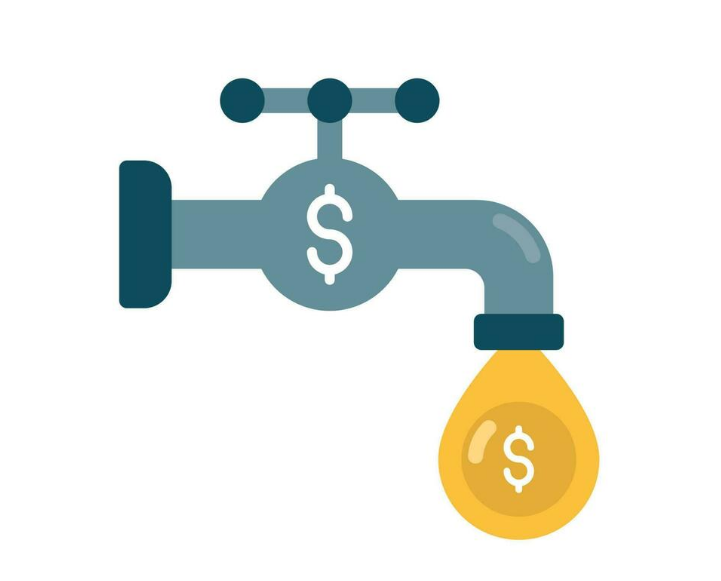Introduction
Long known as an image of money and a good investment vehicle for centuries, gold has now, with the invention of digital gold, been given more alternatives than ever. Of course, physical gold and digital gold are good in their own ways and attract different types of investors. The question arises: which one is better? This article dives deep into Physical Gold vs Digital Gold, comparing their features, benefits, risks, and more to help you make an informed decision.
What Is Physical Gold?
Physical gold are real gold assets, such as gold bars, coins, or jewelry. Investors purchase physical gold for possession and safekeeping; they usually keep the gold in a bank locker or home safe. It gives them some emotional comfort and acts as a hedge against inflation and currency fluctuations.

Benefits of Physical Gold:
- Possession of a physical asset
- It can be worn as jewelry or gifted.
- Serve as a hedge against high inflation and economic downturns.
- No dependence on the use of technology or digital infrastructure.
Drawbacks of Physical Gold:
- It needs to occupy storage space and a security arrangement.
- It is susceptible to theft or loss.
- No earning by way of interest or dividend.
What Is Digital Gold?
Digital gold is the purchase or holding of gold in an online form whereby the corresponding unit of gold is held by a qualified custodian for the benefit of the buyer. Users of apps and other online platforms enjoy seamless purchase and sell transactions; hence the increased adoption of digital gold among millennials and tech-savvy investors.

Benefits of Digital Gold:
- Easily purchased and sold through apps and online platforms.
- No requirement for storage or security at a personal level.
- It can be purchased in small denominations starting from $1.
- Price transparency and no making charges involved.
Benefits of Digital Gold:
- Dependence on the authenticity of the platform.
- You can’t physically touch and feel the gold.
- Some transactions may have transaction charges.
Key Differences Between Physical Gold and Digital Gold
Below is a detailed comparison of Physical Gold vs Digital Gold to highlight the key factors investors should consider:
| Factors | Physical Gold | Digital Gold |
|---|---|---|
| Form | Tangible (bars, coins, jewelry) | Virtual, online gold ownership |
| Storage & Security | Requires lockers or safes | Stored by certified custodians |
| Liquidity | Slightly less liquid; selling involves time | Highly liquid; can sell instantly |
| Transaction Costs | Making charges, storage costs | Platform fees or spreads |
| Investment Size | Requires larger capital | Can invest with small amounts |
Liquidity and Flexibility
The definition of liquidity is how easily an asset can be converted into cash. Digital gold wins this round because one gets immediate liquidity by pressing a few keys on a smartphone. It could take hours to sell physical gold; prices will vary according to how fast you want to get your money and the type of gold: coins or jewelry.

Physical Gold liquidity:
- The sale of gold jewelry may attract melting charges or depreciation, and multiple sales visits may be involved at different buyer stages.
Digital Gold liquidity:
- The beauty of digital gold is that on the same platform in which you bought it, you can sell the asset instantaneously.
Storage and Security
The only problem with physical storage of gold is that it can be distressing and expensive in most instances: bank lockers, safes, and also expenses associated with insurance against theft. Digital gold eradicates all these concerns as it is kept by duly licensed custodians and covered by the platform.

- Physical Gold: Costs of storage and insurance add to the final cost.
- Digital Gold: No storage issues; it takes care of security.
Transaction Costs and Fees
Investment via physical gold incurs a cost such as tax and lock storage charges for gold jewelry. On the other hand, a gold digital portal has relatively low transaction charges and also offers an absolute transparent pricing model based on the market-driven rate of gold.

- Making Charges 5%-20% if invested in a jewelry form
- Locker or storage fees
- Platform fees are spread in both buying and selling processes.
Investment Size and Accessibility
Physical gold usually requires high initial investments, an exception being cases where larger sizes of gold bars or jewelry are being purchased. Investors can invest with minimal amounts of digital gold and accumulate them over time. This makes the product accessible to wider audiences, including young investors.
Which Is Better: Physical Gold or Digital Gold?
Choosing between physical and digital gold hinges on what goals you have in your investment, which is your personal preference, and your financial status. You are a gold enthusiast who wants emotional satisfaction, owns physical possessions, or wants to use gold for gifting or jewelry. Then, in such a case, physical gold is the best suited for you. Digital gold proves perfect when you seek liquidity and convenience and are in a hurry while going about making your transactions.
When to Choose Physical Gold:
- If you want a physical asset that you can touch and feel.
- If you are going to consume it personally (like jewelry or gifting).
- If you buy it in the expectation of hedging against the uncertainty of the economy.
When to Use Digital Gold:
- If you want liquidity with flexibility.
- If you like low-cost, secure investment options.
- If you want to invest small amounts of money over time.
Conclusion: Physical Gold vs Digital Gold – Your Investment, Your Choice
Physical gold is unique in its own way, but so is digital gold. The deciding factor about it depends on your investment goals. So, the attraction of physical gold is how exciting it is to own that, with emotional values involved. Modern investors value the option of digital gold for flexibility and ease of usage. No matter what, tradition, or technology suits you, having some exposure to gold in your investment portfolio is a good strategy.
FAQs
Q. Is the Digital Gold safe?
- Digital gold is relatively safe if you are purchasing it from reputed platforms. The gold is stored in secured vaults held by third-party custodians; most of the websites offering the digital gold have the provision of insurance against theft or loss.
Q. Are there any concealed charges related to physical gold?
- Yes, you will incur making charges when you purchase physical gold (particularly jewelry), locker charges while holding, insurance costs while holding, and melting or assay charges while selling.
Q. Can one earn dividends or interest in gold investments?
- No. Gold, physical or digital, is not an investment that earns dividends or interest. Its prices appreciate over time due to market demand and the economy.
Q. Can I buy physical gold from my digital gold?
- Yes, all sites provide you with the option of converting your digital gold into physical gold. However, extra delivery or making charges will apply according to the quantity and the form.

Owner of Paisewaise
I’m a friendly finance expert who helps people manage money wisely. I explain budgeting, earning, and investing in a clear, easy-to-understand way.


Pingback: The Best Gold Investment Strategies for 2025 - Paisewaise
Pingback: Bitcoin Price Prediction: Can It Hit $100k? - Paisewaise
I’m amazed by your illustrious aptitude to transform everyday topics into captivating content. Great job!
Your words create colorful pictures in my mind. I imagine every detail you describe.